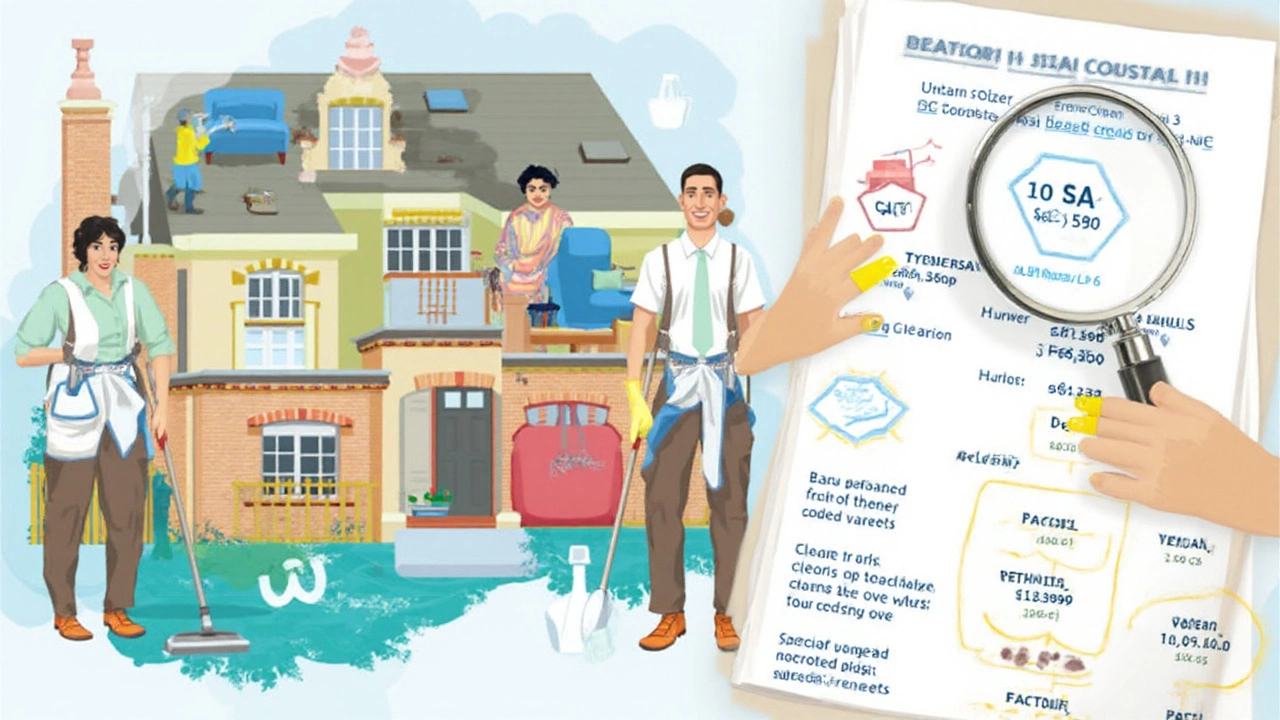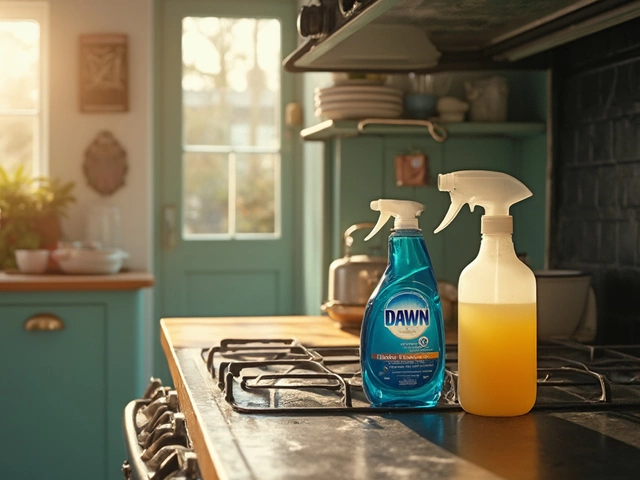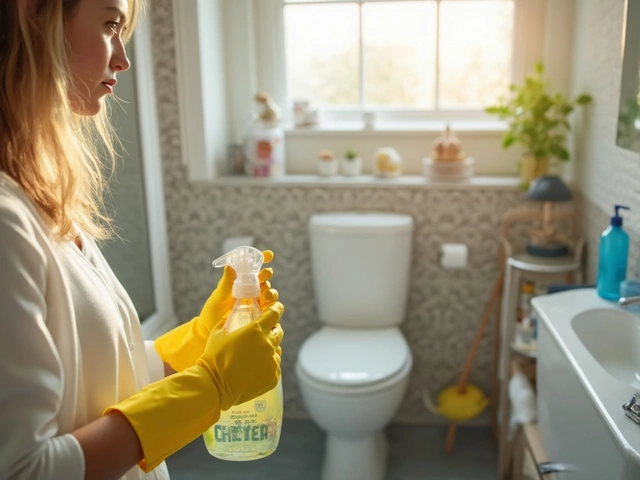Ever thought you might be paying too much—or too little—for cleaning services? You’re not alone. The big myth is that only the rich hire cleaners, but actually, more and more regular folks trust pros to handle their messes. In the top 50 U.S. cities, demand for house cleaning has jumped over 35% in the last five years, and it’s not just for move-outs or special occasions. The real kicker is, prices swing wildly depending on your location, home size, how messy things are, and even the day you book. If you’ve ever wondered what those numbers actually look like, or what sneaky extras can bump your bill up, this is for you. Let’s pull back the curtain on cleaning service pricing and break down exactly what you’re paying for (and what you can skip).
What Do Cleaning Services Typically Offer?
The phrase “cleaning service” means different things to different people. For some, it’s a one-off, full-change spring clean that leaves no dust bunny behind. For others, it’s a steady, weekly sweep and mop, keeping things tidy while you focus on, say, soccer practice or your work deadlines. Professional cleaning companies usually split their services into two big buckets: standard cleaning and deep cleaning.
Standard cleaning hits all the basics: vacuuming, dusting surfaces, bathroom wipe-downs, emptying trash, and a cursory kitchen clean. That’s what most people get on their regular schedule, whether it’s weekly, bi-weekly, or monthly. Deep cleaning takes everything up a notch. We’re talking scrubbing behind appliances, hand-washing baseboards, de-greasing kitchen hoods, and even cleaning inside ovens or fridges. This usually happens less often—the start of spring, before big family visits, or when you’re moving out. According to HomeAdvisor surveys, about 50% of families schedule at least one deep cleaning service a year, even if they do standard cleaning themselves.
Then there are the add-ons. Some services offer eco-friendly cleaning (with non-toxic supplies), pet hair removal, window cleaning, or laundry. These can be a lifesaver—Sable, my dog, explodes fur twice a year and I’d pay double to have all those tumbleweeds phantomed away! But fair warning, a lot of these extras aren’t in the base price. Companies typically create packaged deals, but be ready for à la carte pricing if you have special requests. Want your oven cleaned? That’s probably $25–$50 tacked on. An extra bathroom or a finished basement? Expect an upcharge.
Most cleaning companies bring their own supplies, but a few want you to provide yours (sometimes for allergy reasons or eco-conscious requests). Always confirm that before booking, so you don’t scramble for an empty bottle of floor cleaner as the team rings your doorbell.
How Are Cleaning Service Prices Set?
So, how do companies come up with those numbers that make you squint or sigh with relief? There’s no universal calculator, but the most common pricing models are hourly rates, flat fees by the job, or square footage rates. Hourly rate is the classic: you pay for every person, per hour, usually for standard cleaning. Across the U.S., the average hourly rate lands between $25 to $60 per cleaner, though big cities like San Francisco or New York easily hit the high end or above.
Flat-fee pricing gets more common with recurring services, or when a cleaner knows your place inside-out. One survey found the average flat fee for a one-time, standard clean of a 2-bedroom, 2-bathroom apartment in 2024 was about $135. Deep cleans almost always cost more, typically $200–$400, depending on the size and the crime scene level of mess.
Some companies give quotes based on square footage, especially for sprawling homes. Don’t be surprised if they charge extra for stairs, larger living areas, or even high ceilings—these add labor and time. And then you have specialty services: windows, carpets, move-in/move-out cleans, and more. These often have their own scale.
| Service Type | National Avg. Price (2025) | Low-End | High-End |
|---|---|---|---|
| Standard Cleaning (Hourly) | $30–$50/hr | $20/hr | $80/hr |
| Standard Cleaning (Per Visit, 2BR/2BA) | $135 | $80 | $250 |
| Deep Cleaning (Per Visit, 2BR/2BA) | $275 | $150 | $500+ |
| Move-Out Cleaning (Per Job) | $300 | $150 | $600 |
| Pet Hair/Litter Cleanup | $20+ | $10 | $50 |
So what shapes your final bill? Location tops the list—prices in Los Angeles outpace those in rural Iowa, just like everything else. Next, the size and type of your home matter: townhomes, lofts, and ranches all take different effort to clean. Clutter is a hidden enemy; if every countertop is covered in stuff, cleaners spend a lot more time just moving things. Time of year can sneak in too—spring and early fall usually see the most bookings, so rates jump during those months.
Some companies even charge a first-time clean-up fee if your place hasn’t had pro cleaning in a while. They’re not being dramatic—it really does take more time to get a neglected space up to standard! Don’t forget about taxes, insurance, and overhead. Franchised companies with bonded, insured workers usually charge more than local freelancers. But, as a dog owner who’s had things go sideways, I appreciate knowing we’re both protected if Sable gets underfoot or the team accidentally cracks a vase.

Factors That Impact the Cost of Cleaning Services
There are a surprising number of things that push the price up or down. To start, frequency matters a lot. Most companies reward regular customers with lower per-visit rates (after all, an every-other-week visit takes less effort than tackling a month’s worth of grime in one go). One-off cleans usually cost up to 30% more than recurring ones, simply because your cleaner can’t count on future business.
Pets—big love, big mess. If you’ve got a couple of long-haired dogs or shedding cats, be ready to pay a bit extra. Cleaning teams have to vacuum up fur, clean drool marks, and sometimes deal with “presents” left behind. One company in Chicago charges $15 per cat and $20 per dog, per cleaning.
Geography isn’t just about the city, either. Suburbs might cost less than downtown, but if you’re out in the sticks, the travel fee adds up. If you live in a high-rise, cleaners often need to factor in parking, elevators, and front desk check-ins, which eat into their schedule. Rush bookings—say, you need someone tomorrow—almost always have a premium, often an extra $25–$50.
Cleaners also look at your home’s actual state. If you want them to tackle mold, post-renovation dust, or heavy buildup (think soap scum that’s now eligible for voting), you’ll pay more. Some companies will want to inspect the place or ask for photos first—be honest, they’ve seen worse!
Special needs—like using only green cleaning products, working around allergies, or avoiding certain rooms—can change the price. Some eco-friendly cleaning services are pricier because their supplies cost more or require extra time. Also, keep in mind that supplies for homes with infants, immunocompromised residents, or allergy-prone folks may also require special care and extra work.
Timing can nudge costs too. After big holidays, school breaks, or huge events in your city, there’s a bump in demand. Some companies offer deals during slow months (think mid-January or mid-summer), so watch out for flash “cleaning sales.” Loyalty matters—some offer “refer a friend” discounts or coupons for bookers who stick around months at a time.
Tips for Getting the Best Value From a Cleaning Service
Shopping for cleaning services isn’t rocket science, but there are ways to stretch your dollar and sidestep rookie mistakes. Start with the basics: Get at least three quotes. Prices can swing by 40% between providers in the same city! Ask about included services versus add-ons, and always clarify whether taxes, supplies, and travel fees are part of the quote. The more detailed the quote, the fewer surprises you’ll face on the bill.
Be crystal clear about what you want done. If your biggest problem is cat litter trailing everywhere, make sure it’s in the job description—many are happy to tackle it, but they need to know. Tidy up before cleaners arrive so they can focus on cleaning, not sorting through socks and Legos. You’re paying for cleaning, not organizing (unless you book that extra service).
Loyalty pays off. Many companies cut deals for regulars, and some knock 10–20% off after the fourth or fifth booking. Don’t be shy about asking if they have referral rewards, off-peak discounts, or if you can bundle services (cleaning plus carpet shampooing, for example). Some teams love working with clients who make things easy—quick access, labeled rooms, predictable schedules—so they’ll often go the extra mile or toss in a bonus like free fridge cleaning now and then.
Read reviews, but don’t get hung up on the one horror story out of fifty glowing ones. The most reliable sign is if customers keep coming back month after month. If you have unique needs (like eco-friendly only) make sure to filter by that right away. And absolutely, without fail, check that cleaners are insured and background-checked. The rare mishap is much less stressful to deal with if you know you’re covered.
If budget is top of mind, you can ask about partial cleanings—say, just the bathrooms and kitchen, or just floors. Many companies will work with you on scope. And if you’re not picky about schedule, some services offer small discounts if you book during ‘slow’ times, like mid-weekdays or late afternoons.
Finally, tip your cleaners—especially if you like their work. 15–20% is common (just like at restaurants), and many cleaners rely on tips as a key part of their income. Leave a note if you aren’t home, or use whatever tipping method the company prefers. Pros notice who goes out of their way to show gratitude, and you’ll usually get their best effort next time around.

Is Professional Cleaning Service Worth the Money?
So here’s the million-dollar question (well, hopefully not literally): Is hiring a cleaning service actually worth it? On paper, the cost can seem high, especially if you’re juggling other expenses. But it boils down to a simple trade: your free time and peace of mind versus money spent.
Harvard Business School did a study in 2023 showing that people who outsourced household chores, even just twice a month, reported measurably less stress and higher satisfaction with their lives. You’re probably already trading time for convenience in other areas—food delivery, grocery pickup, even paying for streaming instead of sitting through ads. Cleaning isn’t that different, except it’s usually a bigger energy suck (and let’s be honest, nobody’s ever grinned while scrubbing a toilet).
Professional cleaners handle things faster, deeper, and often better than most of us can manage on our own. They’re trained for trouble spots: streaky glass shower doors, sticky kitchen cabinets, or those terrifying spots under the couch. Their gear is pro-level, much more effective than the bottle of all-purpose spray you’ve had since college.
Of course, if you love cleaning and use it as your zen time, there’s no wrong in skipping the service. But if you look at what you’d otherwise spend those scrubbing hours doing—more time with friends, more dog walks, or maybe finally starting that hobby you’ve been putting off—the math changes.
One thing’s for sure: You’re allowed to treat yourself to a clean home, even if it’s just once a year. The key is to know what matters to you, make informed choices, and don’t fall into the trap of overpaying for things you don’t need. With the right info, cleaning service cost doesn’t have to be a mystery—or a money pit.




